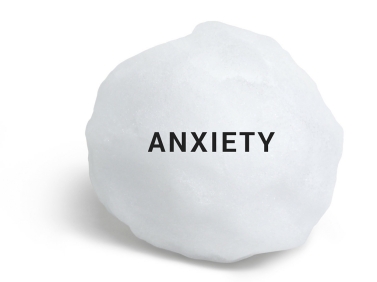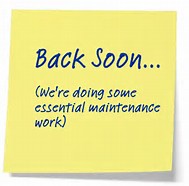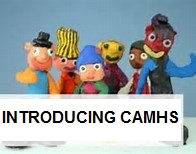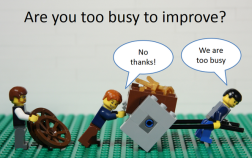 This is a very hard post to write, for various reasons. There are some in the autism community who feel very strongly about autism parents accepting all autistic behaviours and that parents should not speak negatively about them. Being autistic myself, I see both sides and I don’t like seeing autism ‘martyrs’ who humiliate their children online with real names, videos and photographs of their child’s difficult moments and speak constantly of the negatives as if there are no positives, purely to obtain attention/sympathy. But we have to face facts, being an autism parent is extremely hard, especially if your child has an ASD sub-type such as pathological demand avoidance (PDA) and/or if there is a complex presentation such as additional conditions e.g. ADHD or mental health difficulties.
This is a very hard post to write, for various reasons. There are some in the autism community who feel very strongly about autism parents accepting all autistic behaviours and that parents should not speak negatively about them. Being autistic myself, I see both sides and I don’t like seeing autism ‘martyrs’ who humiliate their children online with real names, videos and photographs of their child’s difficult moments and speak constantly of the negatives as if there are no positives, purely to obtain attention/sympathy. But we have to face facts, being an autism parent is extremely hard, especially if your child has an ASD sub-type such as pathological demand avoidance (PDA) and/or if there is a complex presentation such as additional conditions e.g. ADHD or mental health difficulties.
Research has shown that autism mothers especially have inordinately high stress levels, as tested by their stress hormones, such as cortisol. There is no denying it. An autistic child can have extremely challenging behaviours, despite the best efforts of a parent to recognise triggers and do all they can to provide the right environment for the child. And it can be soul-destroying not to find any rhyme nor reason for explosive behaviour despite trying everything – especially if you are an autistic parent and have that additional insight.
This post, is about atypical perception, invisible communication difficulties, the empathy deficits that mean an autistic child cannot understand why lying can have detrimental impact on others (which overlaps with the atypical perception such that it can be very hard to define where it’s a lie or a serious misconstruing) and co-morbid mental health difficulties, that can drive an autistic child towards negative behaviours and intentions. Of course, the mental health difficulties so often stem from struggles in the school environment and despite their best efforts, parents can do very little about those.
When an autistic child has atypical perceptions, they see and live experiences differently, they may put a completely different complex on a matter than the reality. If that child is anxious or depressed, it’s likely to be a negative complex. An example, is our youngest child attributing negative motives to everyone (and then because of PDA, seeking revenge on the ‘offender’) which are simply not there. Autistics are often more easily traumatised by things than non-autistics, and the triggers for those feelings might be inconsequential to most people, but still very distressing to the autistic child. There can be a tendency to exaggerate by the child, that may be how it feels to them and they can be confused, because of the atypical perception.
Autistic children are said to be very honest, it’s true autistics are on average more honest than non-autistics, but they can also mimic others and when they do learn to lie, can fall into a pattern of behaviour in a very literal way, that they think is socially acceptable because they have learned that peers lie and the autistic may struggle to find the ‘off button’ and go to the extreme with it. Autistic children can be incredibly rigid too, and anxiety levels can drive the rigidity. So if they tell a lie, they may doggedly stick to it and mental health difficulties may make them want to ‘punish’ the person they are lying to or about, by sticking to the lie, in the face of explanations as to the problems it is causing.
When an autistic child is intelligent, especially if they have mimicked things (including contexts) they have seen and heard from peers, from books or TV and films, they can appear to be completely plausible in their lie or misinterpretation. Their vocabulary may be extensive which again lends credibility to what they say. They may feel so anxious (in an existential sense) that they simply cannot think past their own emotions and feelings to realise what it is they are doing is wrong. They may lack the empathy to see the consequences. Mimicking can also make an autistic child latch onto something they have heard from another source and use it as a display of their negative behaviour, without true understanding of what they are saying, or the impact of it.
Of course, there is also literalness to add into the mix too and when combined with atypical perception, it is a double whammy to deal with. Interpretation can be so off, but the response given seem to fit so well, that the untrained ear would not realise the lie, miscommunication or unintentional misrepresentation by the child. PDA is a really good example of this.
The difficulty speaking up for an autistic child, may mean that they seek their parent to advocate for them. Their parent is their place of safety and comfort, their parents are the people who understand them the most. When they are masking in e.g. school, mimicking behaviours such as smiling and laughing and appeasing others to fit in, they can appear to be managing very well. So the parent might be the only person presenting the child’s difficulties which others don’t see. However, the release of all the stress of faking it all day, can be extreme. In the case of a PDA child, it is the worst it can get.
A PDA child will utilise ever more sophisticated methods of not only avoiding what they don’t want to do, but to control the parent who they are focusing on. PDA often means obsession with people, rather than things as in other ASD subtypes. Much like OCD, the anxiety makes them want to control, and this will be controlling the person closest to them, which is often the mother. That parent becomes the focus of blame, revenge, lying, manipulation and control by the PDA child. The higher their anxiety goes the worst these behaviours usually become. Underlying the behaviour may also be an anger that the world is a frightening and challenging place, that they believe mum should be ‘saving’ them from and seemingly isn’t. The obsession may mean mum is put on a pedestal of superhero proportions. Of course the higher the pedestal the further there is to fall, hence the negative obsession with mum develops. The almost perpetual state of anxiety the PDA child lives in, means that mum is continually punished for not waving that magic wand and making everything as they wish it. It can become for the parent, like an abusive relationship, where they are worn down by the control, violence, manipulation and obsessiveness of their own child.
http://www.thepdaresource.com/files/An%20examination%20of%20the%20
behavioural%20features%20associated%20with%20PDA%20using%20a%20
semi-structured%20interview%20-%20Dr%20E%20O%27Nions.pdf
“Several children displayed obsessive controlling behaviour towards a particular member of their family.”
“All parents reported their child blamed others when things go wrong, even when it was their own fault. This frequently had an irrational quality, such as blaming younger siblings or parents for their own behaviour, or using elaborate justifications to blame people for events they were unconnected to.”
It seems to be a common PDA set of behaviours that the child will try to control what the parent says, control what answer the parent gives to a question and when that is evidently not happening, it’s a trigger for a meltdown. The parent can be prevented from retreating from the presence of the child, who may scream blue murder if the parent tries. PDA parents end up walking on fine eggshells, to avoid an explosion. The child can use manipulation against the parent to achieve their goal, whether that be avoidance, control, revenge etc. Attempts by the parent to instill boundaries and maintain parental control can become impossible.
The child can be so confused by their social experiences, including within the family and their distortion of events can be marked, that communicating with the child is regularly fraught with the child flaring up irrationally. It makes for very hard communication, because the parent can try to explain that a scenario or event was not how the child perceived it, but they will rigidly refuse to accept it. Meltdowns can be triggered by such misunderstandings by the child. There is no more frustrating meltdown, than one based on a mistaken understanding.
The lying and false accusations by an ASD-PDA child can be devastating to parents, who are trying their level best to support and understand their child. The PDA Society helpline is aware of this as a serious issue for PDA parents, as this thread shows:
“I am one of the Trustees of the PDA Society and whilst every situation is different, I have encountered enquiries on our enquiry line from parents whose children have accused them of physical harm, mental cruelty and sexual abuse to mention a few.
Children with PDA do not realise the full consequences of their actions.
Their parents may have disciplined them or denied them a new pair of trainers and they can seek revenge in some very drastic ways but not realise how it will affect their parent.”
As that thread shows, the false accusations about parents are not always only made directly to the parents, sometimes – and tragically – they are made to third parties as a revenge behaviour. This is where things become extremely serious. When a child makes an allegation of abuse against a parent, they are usually automatically believed, hence it is termed officially as ‘disclosure’. The odds are stacked against the parent because of hysterical attitudes towards child protection in the UK. There is rarely adequate understanding of autism and for PDA it’s close to zero. One clinician who does understand these false allegations is Dr Judy Eaton, at Help for Psychology.
Even with Asperger’s lying can be an issue. The Complete Guide to Asperger’s Syndrome by Tony Attwood (from p121-122)
“Where lying is becoming an issue for the family and friends of the person with Asperger’s syndrome, explanations will be sought. First, due to impaired or delayed ToM abilities, the person with Asperger’s syndrome may not realize that the other person is likely to be more offended by the lie than by any apparent misdemeanour. Second, he or she may consider that a lie can be a way of avoiding consequences, or a quick solution to a social problem. What the person might not acknowledge is that lying can also be a way of maintaining self-esteem should he or she have an arrogant self-image, whereby the making of mistakes is unthinkable.”
“A sense of paranoia
One of the consequences of impaired or delayed ToM skills for the person with Asperger’s syndrome is a difficulty in distinguishing between deliberate or accidental actions of another person.”
There is research on the issue:
https://www.ncbi.nlm.nih.gov/pmc/articles/PMC4820467/
“In contrast, other features characteristic of PDA very clearly differentiated PDA-like individuals within the ASD group. These included (amongst others) apparently manipulative behaviour, difficulties with other people, harassment of others, fantasising, lying, cheating, stealing and socially shocking behaviour.”
The child may use the threat of making allegations against the parent, to hold over the parent as a manipulation tool also.
When the child is seemingly unable to have empathy for others, is vengeful, distorts reality and lies profusely, this is a perfect storm for a parent to be under threat of false accusations and living in fear of it happening.
When you consider the autism ignorance out there, the myth that autistic children cannot lie and the parent-blaming by professionals, a parent can live in abject fear and not know which way to turn, when in this situation.
So this post is just to put this out there, much more needs to be discussed and done, about ASD-PDA families living in these untenable circumstances. To anyone reading this who is in that situation, just know that there are many others out there. It doesn’t help your personal situation of course, but feeling less alone, might be the difference between life and death for someone.
 I have noticed how autistics can mistakenly be perceived by others as “mature”, despite the fact that they are almost always chronologically older, than their actual emotional maturity and awareness and until they have been around longer than others, often not street-wise and are likely to struggle to understand things their neurotypical peers find instinctive. Maturity means experience in life, learning from those experiences, gaining wisdom from those experiences and presenting a somewhat “sensible” face to the world and more than might be expected for your age.
I have noticed how autistics can mistakenly be perceived by others as “mature”, despite the fact that they are almost always chronologically older, than their actual emotional maturity and awareness and until they have been around longer than others, often not street-wise and are likely to struggle to understand things their neurotypical peers find instinctive. Maturity means experience in life, learning from those experiences, gaining wisdom from those experiences and presenting a somewhat “sensible” face to the world and more than might be expected for your age. Sometimes you get a sense of something being up with peoples’ reactions to you, without knowing what or why. As a special needs parent you need to deal with a host of professionals along the way, going through assessment to diagnosis, getting your child’s educational needs met and potentially, ongoing health issues. For an autistic parent this can be a veritable minefield.
Sometimes you get a sense of something being up with peoples’ reactions to you, without knowing what or why. As a special needs parent you need to deal with a host of professionals along the way, going through assessment to diagnosis, getting your child’s educational needs met and potentially, ongoing health issues. For an autistic parent this can be a veritable minefield.


 This is a very hard post to write, for various reasons. There are some in the autism community who feel very strongly about autism parents accepting all autistic behaviours and that parents should not speak negatively about them. Being autistic myself, I see both sides and I don’t like seeing autism ‘martyrs’ who humiliate their children online with real names, videos and photographs of their child’s difficult moments and speak constantly of the negatives as if there are no positives, purely to obtain attention/sympathy. But we have to face facts, being an autism parent is extremely hard, especially if your child has an ASD sub-type such as pathological demand avoidance (PDA) and/or if there is a complex presentation such as additional conditions e.g. ADHD or mental health difficulties.
This is a very hard post to write, for various reasons. There are some in the autism community who feel very strongly about autism parents accepting all autistic behaviours and that parents should not speak negatively about them. Being autistic myself, I see both sides and I don’t like seeing autism ‘martyrs’ who humiliate their children online with real names, videos and photographs of their child’s difficult moments and speak constantly of the negatives as if there are no positives, purely to obtain attention/sympathy. But we have to face facts, being an autism parent is extremely hard, especially if your child has an ASD sub-type such as pathological demand avoidance (PDA) and/or if there is a complex presentation such as additional conditions e.g. ADHD or mental health difficulties. “But we don’t see it in school” (Mum must be lying), “S/he’s fine here, no trouble.” (Mum is attention-seeking, maybe she has FII), “Really? I can’t imagine him/her behaving like that, s/he’s never done that here.” (Mum must have poor parenting skills/there are issues at home).
“But we don’t see it in school” (Mum must be lying), “S/he’s fine here, no trouble.” (Mum is attention-seeking, maybe she has FII), “Really? I can’t imagine him/her behaving like that, s/he’s never done that here.” (Mum must have poor parenting skills/there are issues at home). Autistic children – like children with other disabilities – are vulnerable. Because they are vulnerable they need additional support. It is part of their parent’s role to seek that support and help, as any decent parent naturally would. So why, are there so many professionals that actively obstruct this process and refuse the help and support those vulnerable children need?
Autistic children – like children with other disabilities – are vulnerable. Because they are vulnerable they need additional support. It is part of their parent’s role to seek that support and help, as any decent parent naturally would. So why, are there so many professionals that actively obstruct this process and refuse the help and support those vulnerable children need?
 It had to be done. Due to the popularity of the ‘
It had to be done. Due to the popularity of the ‘










